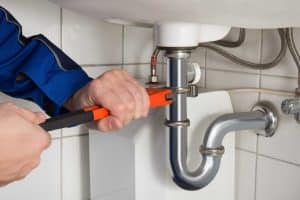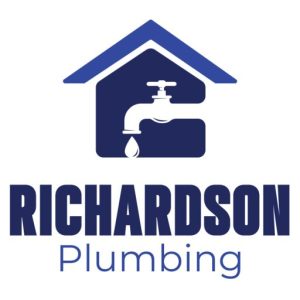
Understanding Your Plumbing System
The Basics of Home Plumbing
Every home is equipped with a complex plumbing system designed to deliver fresh water and remove waste efficiently. Understanding the fundamental components of your plumbing system is the first step in effective maintenance. Key elements include:
-
- Water Supply Lines: These pipes transport clean water from the main supply to various fixtures throughout your home.
- Drainage Systems: Responsible for removing wastewater, these pipes direct used water away from sinks, toilets, and other appliances.
- Fixtures and Appliances: Items such as faucets, toilets, and water heaters play a significant role in your plumbing system.
Common Plumbing Materials
Familiarizing yourself with the materials used in your plumbing can help you understand their strengths and weaknesses:
-
- Copper: Known for its durability and resistance to corrosion, copper is a popular choice but can be more expensive.
- PVC (Polyvinyl Chloride): This lightweight plastic is cost-effective and resistant to corrosion, making it a common choice for drainage systems.
- PEX (Cross-Linked Polyethylene): Flexible and easy to install, PEX is becoming increasingly popular for both hot and cold water lines.
Routine Inspections
The Importance of Regular Checks
Conducting routine inspections of your plumbing can help identify potential problems before they escalate into significant issues. Regular checks can include:
-
- Under-Sink Inspections: Look for signs of leaks around pipes and fixtures. Even minor drips can lead to substantial water damage over time.
- Visible Pipes: Inspect exposed pipes for corrosion, cracks, or any signs of wear and tear.
- Water Stains: Keep an eye out for stains on walls or ceilings, as these can indicate hidden leaks.
How to Conduct an Inspection
To perform an effective plumbing inspection:
-
- Turn Off All Water Fixtures: Ensure no water is running during your inspection to get an accurate assessment.
- Check Water Pressure: Use a pressure gauge to monitor water pressure levels. Ideal pressure should be between 40-60 psi.
- Look for Moisture: Use a flashlight to inspect dark areas under sinks and behind appliances for moisture or mold.
Drain Maintenance
Keeping Drains Clear
Clogged drains are a common household nuisance that can lead to more severe plumbing issues. To prevent clogs:
-
- Avoid Pouring Grease: Never pour cooking oil or grease down the drain, as it can solidify and cause blockages.
- Use Drain Strainers: Install strainers in sinks and showers to catch hair, food particles, and other debris.
- Regular Cleaning: Schedule routine drain cleaning using safe, natural solutions like baking soda and vinegar.
Signs of Clogged Drains
Be vigilant for signs that your drains may be clogged:
-
- Slow Drainage: If water is taking longer than usual to drain, it may signal a buildup in the pipes.
- Unpleasant Odors: Foul smells emanating from drains can indicate trapped waste or stagnant water.
- Gurgling Sounds: If you hear gurgling noises when using fixtures, it may mean air is trapped in the pipes due to a blockage.
Water Heater Care
Importance of Water Heater Maintenance
Your water heater is a vital component of your plumbing system, providing hot water for various household needs. Regular maintenance can extend its lifespan and improve efficiency.
-
- Annual Flushing: Sediment can accumulate in the tank, affecting performance. Flushing the tank annually helps remove this buildup.
- Check the Anode Rod: This rod prevents corrosion inside the tank. Inspect it every few years and replace it if more than 50% is corroded.
- Temperature Settings: Set your water heater thermostat to 120°F to prevent scalding and save energy.
Recognizing Water Heater Issues
Be aware of signs that your water heater may need attention:
-
- Leaking Water: Puddles around the base of the heater can indicate a leak.
- Discolored Water: Rusty or cloudy water may suggest corrosion inside the tank.
- Strange Noises: Banging or popping sounds can indicate sediment buildup or other issues.
Fixture Maintenance
Regularly Inspecting Fixtures
Fixtures such as faucets and showerheads require regular attention to ensure they function correctly and efficiently.
-
- Check for Leaks: Inspect faucets and showerheads for drips, which can waste significant amounts of water over time.
- Clean Aerators and Showerheads: Mineral deposits can accumulate, affecting water flow. Soaking them in vinegar can help remove buildup.
- Replace Worn Washers: If a faucet drips, replacing the washer may resolve the issue.
Toilet Maintenance
Toilets are essential fixtures that require specific maintenance:
-
- Test for Leaks: Add food coloring to the tank. If color appears in the bowl without flushing, you may need to replace the flapper.
- Inspect for Cracks: Check the toilet bowl and tank for cracks, which can lead to leaks and water waste.
- Keep the Toilet Clean: Regular cleaning helps prevent mineral buildup and keeps the toilet functioning properly.
Sump Pump Care
Importance of Sump Pump Maintenance
If your home has a basement, a sump pump is crucial for preventing flooding. Regular maintenance ensures it operates effectively.
-
- Test the Pump: Pour water into the sump pit to check if the pump activates. It should turn on and pump the water out.
- Clean the Pit: Remove debris from the pit to prevent clogs and ensure proper operation.
- Consider Backup Power: Installing a battery backup system can keep your sump pump running during power outages.
Signs of Sump Pump Problems
Watch for signs that your sump pump may need repair:
-
- Frequent Cycling: If the pump runs constantly, it may indicate a problem with the float switch or a high water table.
- Strange Noises: Unusual sounds can indicate mechanical issues that require attention.
- Visible Rust or Corrosion: Inspect the pump for rust, which can affect its functionality.
Seasonal Plumbing Preparation
Winterizing Your Plumbing
Preparing your plumbing system for winter is essential to prevent freezing and bursting pipes.
-
- Insulate Exposed Pipes: Use foam insulation sleeves to protect pipes in unheated areas like basements and attics.
- Disconnect Outdoor Hoses: Drain and store outdoor hoses to prevent freezing and potential damage.
- Seal Cracks and Gaps: Use caulk to seal any openings where cold air may enter, protecting your pipes from freezing temperatures.
Preparing for Summer
As the weather warms up, consider the following:
-
- Check Outdoor Fixtures: Inspect outdoor faucets and hoses for leaks and ensure they are functioning correctly.
- Clean Gutters and Downspouts: Clear debris to prevent water from pooling around your foundation.
- Inspect Sprinkler Systems: Test your sprinkler system to ensure it operates efficiently and check for leaks.
Emergency Preparedness
Recognizing Plumbing Emergencies
Plumbing emergencies can occur at any time and can lead to significant damage if not addressed promptly. Common emergencies include:
-
- Burst Pipes: Sudden bursts can cause flooding and extensive damage.
- Overflowing Toilets: This can lead to unsanitary conditions and potential water damage.
- Sewer Backups: A serious issue that requires immediate attention from a professional.
Immediate Actions to Take
In the event of a plumbing emergency, follow these steps:
-
- Shut Off the Main Water Supply: This will stop water flow and prevent further damage.
- Contain the Water: Use towels or buckets to catch and contain any leaking water.
- Call a Professional: Contact a licensed plumber to address the emergency and prevent further issues.
Professional Plumbing Services
When to Call a Plumber
While many maintenance tasks can be performed by homeowners, some situations require professional expertise:
-
- Persistent Leaks: If you cannot identify or resolve a leak, a plumber can help diagnose the problem.
- Clogged Drains: If DIY methods fail to clear a clog, professional tools may be needed.
- Major Repairs: For significant issues such as sewer line repairs, always call a professional.
Benefits of Professional Maintenance
Investing in professional plumbing maintenance offers several advantages:
-
- Expert Knowledge: Professional plumbers can identify problems that may go unnoticed by homeowners.
- Efficient Repairs: They have the tools and experience to address issues quickly and effectively.
- Peace of Mind: Knowing that your plumbing system is in expert hands reduces stress and ensures safety.
Eco-Friendly Practices
Sustainable Plumbing Solutions
Incorporating eco-friendly practices into your plumbing maintenance can benefit both your wallet and the environment:
-
- Install Low-Flow Fixtures: These fixtures reduce water consumption without sacrificing performance.
- Use Eco-Friendly Cleaners: Opt for natural cleaning solutions to avoid harmful chemicals that can damage plumbing.
- Monitor Water Usage: Keep track of your water bill to identify unusual spikes that may indicate leaks.
Benefits of Going Green
Adopting sustainable plumbing practices can lead to:
-
- Reduced Water Bills: Lower water usage translates to savings on utility bills.
- Environmental Impact: Conserving water helps protect local ecosystems and reduces the strain on water resources.
- Increased Home Value: Eco-friendly upgrades can enhance your home’s marketability.
We Provide Comprehensive Plumbing Installation, Repairs, and Maintenance Services
When it comes to plumbing installation and repair services, you need a reliable partner who understands the importance of a functional plumbing system in your daily life.
> Learn More
Maintaining your plumbing system is an essential part of homeownership that requires attention and care. By following these essential plumbing maintenance tips, you can prevent costly repairs, ensure the efficiency of your system, and protect your home’s value. Whether you choose to tackle maintenance tasks yourself or enlist the help of professionals, staying proactive will help you enjoy a safe and functional plumbing system for years to come.
Contact us (859-371-2239) for a free consultation!
—
 About Richardson Plumbing
About Richardson Plumbing
Richardson Plumbing offers a wide range of residential and commercial plumbing services using seasoned professionals and the highest quality parts and equipment available. We continually strive to exceed expectations by ensuring that each client receives prompt, outstanding service from our entire organization. Richardson Plumbing provides free consultations that explain all of your available options, so you can choose the scope of work that’s right for your home or business. When you have problems that just can’t wait until tomorrow, we can provide 24 hour emergency services.
> Learn More

 About Richardson Plumbing
About Richardson Plumbing